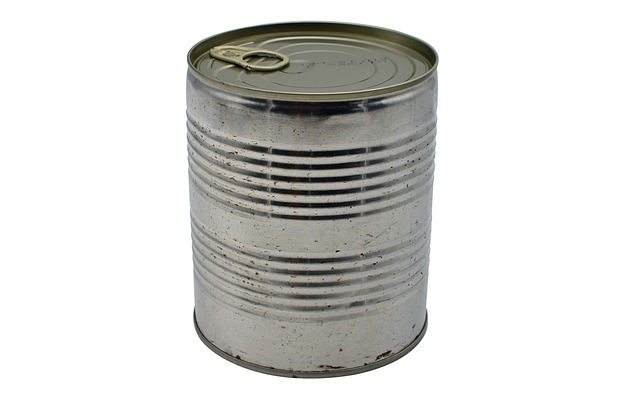In Houston's real estate market, distressed sales often involve fire-damaged properties, but proper disclosure and strategic repairs allow for successful sales. Sellers can facilitate this process by being transparent about defects, enlisting expert agents, and restoring the home to pre-fire condition. Despite challenges, fire damage doesn't prevent selling; instead, it requires open communication and expertise to navigate the market effectively, answering "can you sell a house with fire damage Houston?" affirmatively.
“Uncovering the nuances of distressed property sales in Texas, particularly focusing on Houston’s unique market. This comprehensive guide explores critical aspects like understanding fire damage’s impact on house sales and navigating legal considerations, especially regarding selling homes with fire damage in Houston.
We delve into practical strategies for successful distressed property sales, offering valuable insights to help you navigate this complex process. If you’re wondering ‘can you sell a house with fire damage in Houston?,’ get ready to discover the answers and unlock profitable opportunities.”
- Understanding Distressed Property Sales in Texas
- Fire Damage and Its Impact on House Sales in Houston
- Legal Considerations: Can You Sell with Fire Damage?
- Strategies for Successful Distressed Property Sales
Understanding Distressed Property Sales in Texas

In Texas, distressed property sales encompass situations where homeowners face financial hardships, leading to them selling their homes quickly. These circumstances can include unemployment, foreclosure threats, or unforeseen events like fire damage in Houston. When a house experiences fire damage, it creates unique challenges for both sellers and buyers. However, with the right approach, it’s still possible to sell a home with such issues.
Fire damage, while detrimental, doesn’t necessarily render a property unsellable. Buyers who specialize in distressed properties or those willing to invest in renovation are more likely to see potential rather than immediate red flags. In Houston, where the real estate market is dynamic, understanding distressed sales is crucial for both parties. Sellers can seek out specialized agents or investors who can navigate the process, ensuring a fair and timely sale, while buyers can secure deals on properties that might need some tender loving care.
Fire Damage and Its Impact on House Sales in Houston

In the bustling metropolis of Houston, fire damage to properties presents unique challenges for both homeowners and real estate agents. When a house sustains fire damage, it can leave a significant mark on its resale value and marketability. Homebuyers often view fire-damaged homes with caution, concerned about potential hidden costs and repairs. This perception can be especially pronounced in competitive markets like Houston, where distressed properties are already in high demand.
Despite these challenges, it’s possible to sell a house with fire damage in Houston. Repairs and renovations can restore the property to its pre-fire condition, attracting new buyers. Real estate agents play a crucial role by providing transparent disclosures about the fire damage history and scope of necessary repairs. This transparency builds trust between sellers and buyers, facilitating a smoother sales process. In some cases, even partial renovations can increase the home’s value, demonstrating that with the right approach, fire-damaged properties in Houston can find new life and owners.
Legal Considerations: Can You Sell with Fire Damage?

When considering a distressed property sale in Texas, particularly in areas like Houston, it’s crucial to understand the legal implications, especially regarding fire damage. The question often arises: can you sell a house with fire damage? In Texas, selling a property as-is, including its damaged state, is entirely possible and legally sound. Many buyers are drawn to distressed properties due to their potential for renovation and lower prices. However, sellers must disclose any known material defects, such as fire damage, to avoid legal repercussions.
Fire damage presents unique challenges but doesn’t necessarily bar a sale. The key lies in thorough disclosure and ensuring that all parties involved are aware of the property’s condition. Sellers should consult with real estate professionals and legal experts to navigate the process effectively. This includes obtaining estimates for repairs and potentially negotiating terms that accommodate post-sale remediation, ensuring a smooth transaction despite the fire damage in Houston or any other Texas city.
Strategies for Successful Distressed Property Sales

Selling a home with fire damage in Houston, or any distressed property for that matter, requires a strategic approach to navigate this unique market. One key strategy is to focus on transparency and honesty about the property’s condition. Many buyers are willing to overlook issues if they know what they’re getting into from the start. Disclosing fire damage allows potential buyers to make an informed decision and can even lead to fair negotiation.
Another effective strategy involves professional restoration. Even though it may seem like a significant upfront cost, restoring a property to its pre-distress state can significantly increase its resale value. In the case of fire damage in Houston homes, specialized contractors can mitigate any health risks associated with smoke and soot, ensuring a safer environment for future residents. This step can attract more buyers and potentially speed up the sales process.
In the context of Texas’s distressed property sales, understanding the specific challenges and strategies associated with fire-damaged homes is crucial. As seen in our exploration of fire damage’s impact on Houston real estate, such properties present unique opportunities for buyers seeking affordable options. However, navigating legal considerations regarding fire damage is essential to ensure a successful sale, particularly when answering the question: “Can you sell a house with fire damage in Houston?” By employing effective strategies discussed in this article, both sellers and buyers can navigate these transactions efficiently, fostering a robust market for distressed properties in Texas.






